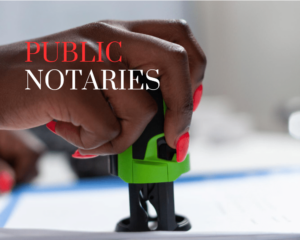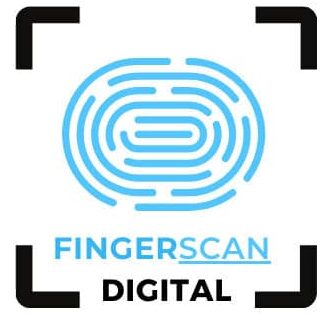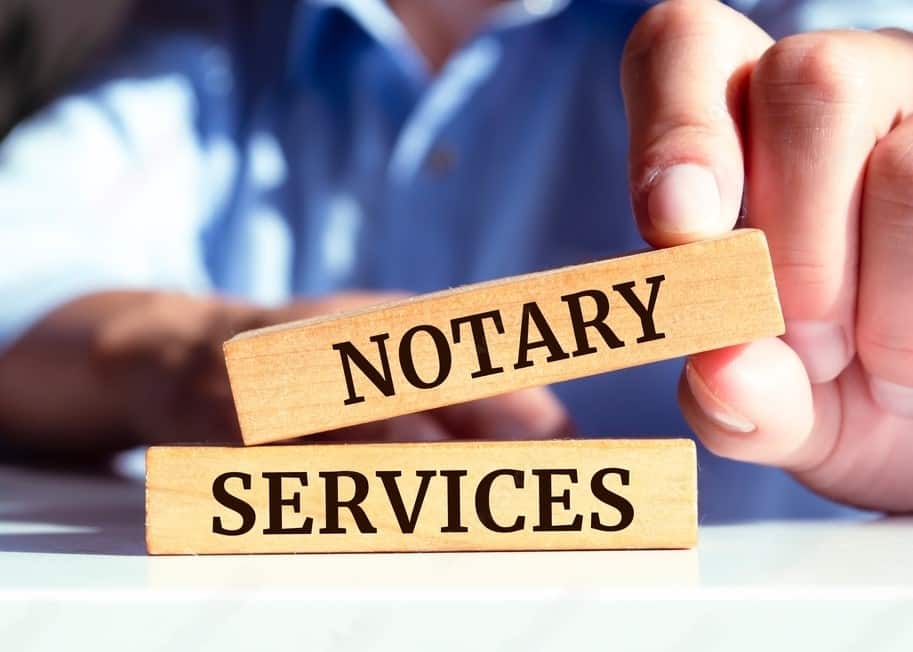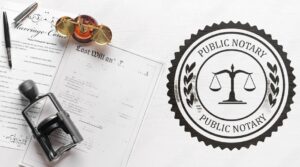Are you ready to embark on a journey through the world of legal documentation and protection? If you’re buying a new house, starting a business, or even dealing with personal legal matters, you can’t afford to overlook the essential role of public notaries. In this user-friendly guide, we’re going to demystify the realm of public notaries, understanding their importance, their responsibilities, and why they’re the unsung heroes you need on your side.
Chapter 1: Introduction to Public Notaries
Defining Their Role Ever wondered who’s behind the scenes ensuring your documents are legit? That’s the role of public notaries! They’re the authorized experts who validate signatures, administer oaths, and give your paperwork that all-important stamp of authenticity.
Why Notarization Matters Picture this: you’re buying your dream home, but how can you be sure those signatures are for real? Notaries swoop in to save the day. Their seal and signature act like a superpower, guaranteeing the documents you’re signing are the real deal and haven’t been tampered with.
Chapter 2: Becoming a Notary Public

Meeting the Criteria Becoming a notary is like joining an exclusive club – but it’s not as complicated as it might seem! There are a few must-haves, like being a certain age, having a clean record, and meeting residency requirements.
The Application Adventure Ready to take the plunge? Applying to be a notary involves filling out some paperwork and possibly passing a test. Once you’re in, you’re armed with the power to notarize!
Getting Schooled Every hero needs training, right? Notaries are no different. You’ll likely need to undergo some training or education to get the hang of your new superpowers.
Chapter 3: Unleashing Notarization Magic
What’s Up for Notarization? Spoiler alert: a lot! Contracts, affidavits, deeds – you name it. If it needs that extra layer of trust, notaries are on the case.
How Notarization Happens Think of notarization as a step-by-step dance. First, verifying identity. Then, confirming the signer is all in. Finally, the notary’s seal and signature make it official.
ID, Please! No, it’s not a nightclub – it’s the identity check. Notaries make sure you’re you before putting their stamp on things.
Chapter 4: Types of Notarial Acts
Acknowledgments: The Confirmation With acknowledgments, it’s all about confirming you’re willingly signing. Notaries make sure you’re not getting tricked into anything.
Jurats: Sworn and Sealed When it’s time to swear to the truth, notaries are there to make sure you’re taking it seriously.
Oaths and Affirmations: Speak Your Truth Need to make a promise? Notaries are your go-to for official oaths and affirmations.
Chapter 5: The Modern Notary
On-the-Go Notaries Imagine a notary coming to you – that’s mobile notarization! It’s like having your own superhero at your service.
Notarization in Your PJs? Yes, Please! Technology is a game-changer with remote online notarization. Sign documents online while a notary supervises via video call.
Chapter 6: Shielding Against Fraud
Fraud Buster Notaries Public notaries are the guardians against fraud. They make sure no one’s pulling a fast one when it comes to your documents.
Tamper-Proofing Secrets Once a document is notarized, it’s like it’s encased in a protective shield. No sneaky changes allowed!
Keeping the Records Straight Notaries keep records like historians. It’s not just for bragging rights – it’s for legal protection.
Chapter 7: Going Global with Notarized Docs
Apostille and Beyond For documents that cross borders, an apostille or legalization is like a passport stamp for authenticity.
Sealing Deals Worldwide Whether it’s a global business pact or an international property deal, notarized documents make sure everyone’s on the same page.
Chapter 8: The Cost of Legitimacy
Pricing Notary Services Even superheroes deserve compensation. Notaries charge fees for their services, but it’s all regulated and fair.
Pay for Value The cost of notarization depends on the type of document and the level of service. It’s all about value for your peace of mind.
Chapter 9: Challenges and Ethics
No Legal Advice Zone Notaries aren’t attorneys – they’re not here to give legal advice. The key is maintaining a distinct boundary and ensuring clarity between the two.
Guardians of Confidentiality Notaries are sworn to secrecy. Your personal information and documents are safe in their hands.
Chapter 10: Frequently Asked Questions About Public Notaries
FAQs:
-
What is a public notary?
A public notary is a specially authorized individual who plays a crucial role in ensuring the authenticity and legality of documents. They witness signatures, administer oaths, and verify the identity of signatories to prevent fraud.
-
Why is notarization important?
Notarization adds an extra layer of trust to documents. It confirms that the signer is genuine, aware of the document’s content, and willing to sign. Notaries also prevent tampering after signing, making documents more credible.
-
How do I become a notary public?
Becoming a notary involves meeting specific requirements, which vary by location. These may include age, residency, and background checks. You’ll need to submit an application, possibly pass an exam, and complete any required training.
-
Can a notary come to my location?
Absolutely! With mobile notaries, you can have a notary visit your location for convenience. They’ll help you with notarization without you having to leave your home or office.
-
What types of documents can be notarized?
A wide range of documents can be notarized, including contracts, deeds, affidavits, and power of attorney forms. If you need to ensure the document’s authenticity, a notary can help.
-
Can a notary provide legal advice?
No, notaries are not authorized to give legal advice. Their role is focused on verifying identities, ensuring willingness to sign, and maintaining document integrity.
-
Can my family member be my notary?
While it’s technically possible, it’s generally best to avoid notarizing documents involving close family members. Notaries should remain impartial, and involving family could raise ethical concerns.
-
Is it possible to notarize a document after it’s been signed?
Notarization is typically done at the time of signing. Retroactively notarizing a document might not be possible or legally valid. It’s best to consult a notary before signing.
-
How much does notarization cost?
Notary fees vary based on location, type of document, and the notary’s service charges. It’s important to discuss fees upfront before proceeding with notarization.
-
Can notarized documents be used internationally?
Yes, notarized documents can often be used internationally. However, for some countries, an additional step like apostille or legalization might be required to verify the notary’s seal and signature.
-
What’s the difference between an acknowledgment and a jurat?
An acknowledgment confirms the signer’s identity and willingness to sign, while a jurat involves the signer swearing an oath to the document’s content. Both serve to validate the document’s authenticity.
-
What’s remote online notarization (RON)?
Remote online notarization allows you to get documents notarized online through video conferencing. A notary oversees the process virtually, making it convenient for those unable to meet in person.
-
How do notaries prevent fraud?
Notaries prevent fraud by verifying the identity of signatories, ensuring their understanding of the document, and using seals and signatures to deter tampering.
-
Are notaries allowed to share my personal information?
No, notaries are bound by strict confidentiality rules. Your personal information and the content of the documents you present remain confidential.
-
What happens if I don’t get a document notarized?
Notarization isn’t always mandatory, but it can provide an extra layer of credibility. Some documents, like deeds and certain contracts, may require notarization for legal validity.
Navigating the world of notaries and notarization can be complex, but these FAQs should shed light on some common questions. Remember, public notaries are here to assist you in ensuring the authenticity and legality of your important documents. If you have specific concerns or need advice, don’t hesitate to reach out to a qualified notary in your area.
Conclusion: The Unsung Heroes of Legitimacy
Champions of Trust Public notaries may not wear capes, but they’re the real heroes in your legal journey. They’re the ones ensuring your documents have that golden seal of authenticity.
From home sweet home to business grandeur and beyond, notaries are the keepers of legitimacy. Armed with this knowledge, you’re ready to navigate the legal labyrinth with confidence, knowing that those all-important documents are backed by the might of the notary seal. Remember, in the world of legality, public notaries are the ultimate sidekicks you can’t afford to ignore. You can learn more about public notaries
Read more blogs here





